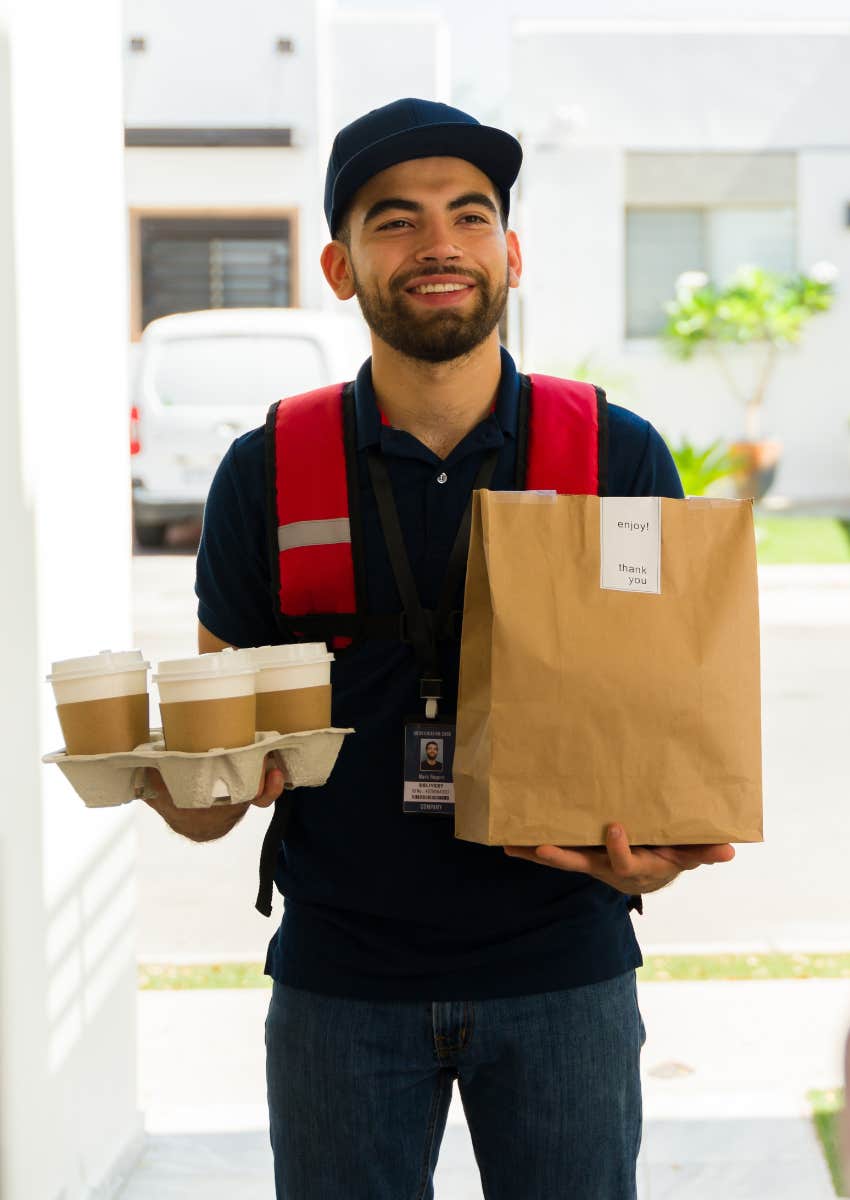8 Small Joys The Happiest People Don’t Feel Guilty Paying For, According To A Positivity Expert
Turns out money actually can buy happiness, especially if you spend it on these things.
 Bobex-73 | Shutterstock
Bobex-73 | Shutterstock Scientists have been studying the relationship between happiness and money for years, and many have found a positive correlation between having a higher income and being happier. Others have discovered that, while money can buy happiness, it often doesn't feel like it because people don't know how to spend it right.
Happiness researcher Jessica Weiss argued that "there are eight things you shouldn’t feel guilty about spending money on," and claimed that these small investments benefit your overall well-being in the long run. Retail therapy, anyone?
Here are 8 small joys that the happiest people don't feel guilty paying for:
1. Live music
 Melinda Nagy | Shutterstock
Melinda Nagy | Shutterstock
Listening to music and singing with a crowd releases hormones like dopamine and oxytocin, which are related to feelings of pleasure, bonding, and relaxation. Being part of a concert crowd can boost happiness and make us feel more connected to others.
Sociologist Emile Durkheim explained the experience as "collective effervescence," which is "a feeling of belonging and assimilation produced by collective ritual action." Though there isn't much evidence that solidly supports this notion, you understand this innate feeling of connection if you've ever been to a live concert. You don't have to know the people around you, but as you sing along together, the tie that binds you together makes you feel like friends.
2. Novel experiences
 Dragana Gordic | Shutterstock
Dragana Gordic | Shutterstock
New experiences are another thing that releases significant amounts of dopamine in the brain. Weiss shared that they also cause denser memory formation, where experiences that grab your attention activate a certain part of the brain to help you remember them. This is why your exciting vacation feels like it passes in the blink of an eye while your work week seems to drag on forever.
People who engage in novel experiences feel more satisfied in life and have better time perception. Even small things like visiting a new restaurant, getting your hair or nails done, or meeting up with friends can improve the way you think and feel about life.
3. Time-saving purchases
 antoniodiaz | Shutterstock
antoniodiaz | Shutterstock
Weiss said products and services that save time are a "mental health investment." Spending money on things that save you time helps reduce stress and protects you from the detrimental effects of time pressure.
Research performed on the relationship between buying time and happiness found that people who invest in time-saving purchases like hiring someone to clean their house or having their groceries delivered report greater life satisfaction. This is true for people who have varying amounts of income as well, as the researchers claimed, "people from across the income spectrum benefited from buying time." By spending money on things that save you time, you're doing your future self a favor.
4. Activities that boost your relationships
 Unstoppable Art | Shutterstock
Unstoppable Art | Shutterstock
Research shows that having close relationships is a key predictor of happiness in life. As humans, we require certain amounts of emotional and psychological support, most often provided to us by the other people in our lives. Friends, family, romantic partners, and even co-workers all contribute to this emotional well-being.
By spending our money on experiences or activities that strengthen these relationships, we are investing in our happiness for the rest of our lives. It could be as simple as a dinner with friends or a plane ticket to fly home and visit your family.
5. Being generous to others
 fizkes | Shutterstock
fizkes | Shutterstock
Spending money on others also activates the reward centers in the brain, meaning you'll feel similar effects when you spend money on others as you do when spending money on yourself. Scientists call it "prosocial spending," and it refers to benefiting others by spending money on things like gifts or donations.
Prosocial spending has various psychological impacts, including feeling connected to others and having autonomy, or having a sense of choice in giving. Generous giving improves the world for both ourselves and others.
6. Small joys
 Mix Tape | Shutterstock
Mix Tape | Shutterstock
Giving your brain small hits of pleasure from spending rather than one big one "delivers more cumulative joy," according to Weiss. Small, frequent purchases allow us to consistently receive dopamine releases in the brain compared to one release from a large purchase.
Additionally, making big purchases or spending significant amounts of money can trigger anxiety and panic. Though it's inevitable that we'll have to make these kinds of purchases at some point, dopamine from small spends like a daily coffee is much less likely to be overridden by stress.
7. Counterintuitive challenges
 maxbelchenko | Shutterstock
maxbelchenko | Shutterstock
Weiss said that "challenging experiences, like plunging into cold water, completing tough hikes, mastering difficult skills — create lasting satisfaction."
Dr. Will Tyne, a Doctoral Researcher with Loughborough University, investigates the impact of physical challenges on performance and well-being. He stated, "For example, in sport, athletes who have faced setbacks or challenging competitions often experience psychological growth, such as increased resilience, improved focus under pressure, and a heightened ability to manage stress effectively." All this basically means that undergoing challenging experiences increases our ability to be satisfied in life.
8. Making plans in advance
 goodluz | Shutterstock
goodluz | Shutterstock
Planning experiences or events ahead of time brings multiple types of joy. Anticipatory joy comes after we make initial plans and leads up to the day. Experience joy occurs while we are engaging in the experience, and memory joy happens as we form and revisit memories from the experience.
Having something to look forward to increases our happiness up until the event occurs, and it gives us something to look back on after it ends. According to a study from the Institute for Applied Positive Research, 97% of respondents said the actual booking of a trip made them happier. Just booking it. Note to self ... plan trip tonight after work!
Kayla Asbach is a writer currently working on her bachelor's degree at the University of Central Florida. She covers relationships, psychology, self-help, pop culture, and human interest topics.

